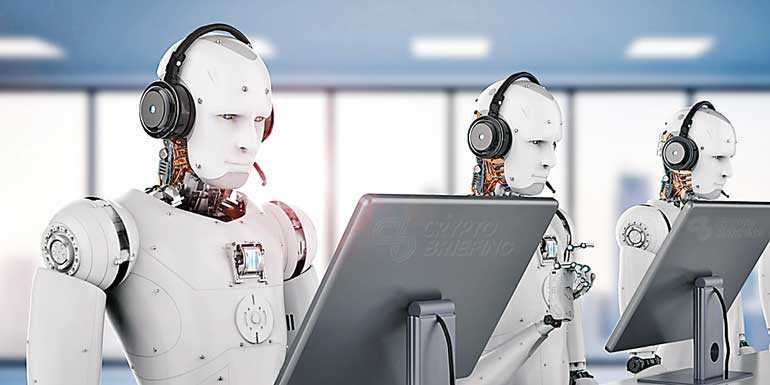Wednesday Feb 18, 2026
Wednesday Feb 18, 2026
Monday, 7 January 2019 01:28 - - {{hitsCtrl.values.hits}}

800 million jobs are expected to be lost by 2030 due to automation according to a study by the Mckinsey Global Institute. That is a fifth of the global workforce. This is the reality the world is facing as automation is increasingly taking over many things we do. We know that technology is taking over repetitive and menial jobs and we can see that even in banks as we are encouraged to deposit our money in a machine rather than at the counter. In time, the person at the counter will lose his or her job.
Deep learning
Usually the computers did the repetitive jobs that did not need thinking so the jobs which needed critical thinking were safe from automation. With artificial intelligence using deep learning, the computers are able to use vast amounts of data and learn for themselves and use the experience they encounter to further study and improve themselves further. 
The late Cambridge Professor Stephen Hawking believed that the development of AI more powerful than the human brain could even lead to the end of the human race. This view is also supported by others like Tesla’s Elon Musk.
Machines taking over
According to the World Economic Forum, in a study on the division of labour as hours spent, in 2018, machines are doing 29% of the work. By 2022 it will be 42% and will hit 52% by 2025. Data processing jobs are to be worst hit with 62% of jobs being taken over. 47% of American jobs are likely to be lost in the next 20 years to AI, according to the Oxford University. We are seeing a push by AI into areas such as design, medicine and finance too.
AI can be the future
According to the World Economic Forum by 2022, 135 million jobs related to AI will emerge, though it says it requires major investment in developing a workforce capable of working in that field. People will need to update their skills and education has to be geared towards this to prepare our future graduates for this new reality. Though, developed countries are expected to face AI first, in this age of globalisation, it will not be long before it comes to the third world.
But in AI, there is a lot of hope. Not only will AI make life more comfortable for humans, we can expect faster services also. It is also a big area for investments. According to Gartner, business value derived from AI is $1.2 trillion in 2018 but is expected to be $3.9 trillion by 2022. There is $2.7 trillion dollars worth of business to come into existence in the next four years alone. AI will create losers but also winners as it causes change in the world. But the price for AI is loss of jobs.
Universal Basic Income
What is Universal Basic Income (UBI)? It is a fixed amount enough for subsistence given by the government to all citizens, regardless whether they are rich or poor, employed or unemployed. This is an idea that is advocated by many in Silicon Valley like Elon Musk, Mark Zuckerberg and Bill Gates. They agree that as the world gets more and more automated, people will lose their jobs to machines as McKinsey Global Institute predicts, 800 million are to lose their jobs by 2030.
The supporters of UBI believe that with more robots replacing humans, company profits will soar as robots will bring overheads down and a robot works 24 hours a day compared to eight hours a day by humans. With corporate profits soaring, tax revenue will increase. Also, governments can have license fees for robots which will be a further source of income for governments. Governments can use this money to give a guaranteed income to every citizen. As automation keeps steadily taking over jobs and jobs in the AI industry cannot replace the numbers lost, Universal Basic Income being adopted maybe the only solution.